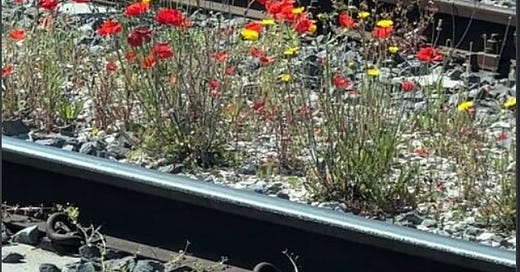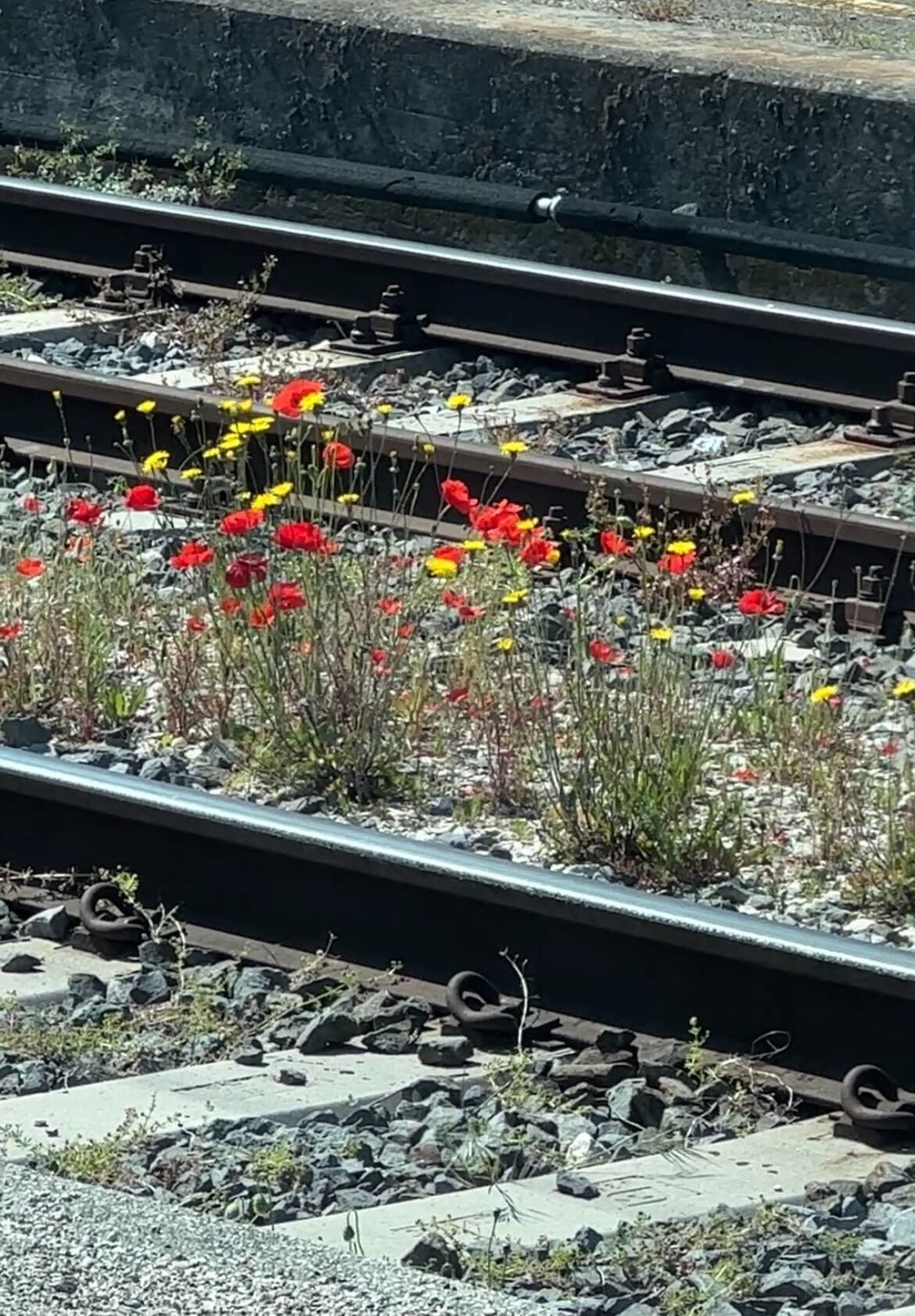Mother Tongue
The Muses of a Literary Panel on "Latinidad" Urge a Foray Into Translation (Susana, esta es para vos. <3)
I attended a PEN American event this week titled “How We Became/Become: Latinidad, Identity & Love,” a discussion about Latinx masculinity featuring Jose Olivarez, Javier Zamora, Maria Fernanda Ampuero.
I teared at poetry and prose detailing the inner lives of the male authors on stage, fictional and autobiographical, detailing the secret and silent lives of the generations of fathers we have failed to know under the weight of machismo.
“Silence is a huge part of the patriarchy unless if you have an excuse — a vice — drinking, gambling”… that allows you to express yourself,” Zamora said. (I’d also add sex.)
Olivarez said that this theme follows him when he speaks in schools about his writing. In addition to students asking about his writing, he has received repeated questions seeking advice on how to have relationships with their fathers. An epidemic of generational longing.
“It made me want to reach for more emotional language,” he said, “It’s needed.”
The authors approached the topic with such grace, reverence and beauty, as well as humor. I quickly felt a sense of ease, of being known, of being home.
One of the things I most appreciated was a sort of housekeeping question asked at the start by the moderator, the poet Eloisa Amezcua.
“How many people in the audience either speak or understand Spanish?”
It’s a deceptively simple question, but one that also points to the reality of our diaspora. Some of us were born and raised in Spanish-speaking countries, others born and emigrated to the US at young ages, others the children of immigrants, and yet others, connected by heritage and ancestors.
For those who speak the Spanish language, the language of a colonizer made into our own, we are divided by colloquialism and accents. And for those who do not speak the mother tongue, a sense of longing and sometimes shame. I know I feel that when I speak and my words twist, I slip into Spanglish, I struggle with finding the right words.
As my friend Jamia Wilson once said about her desire to speak French, her mother tongue, the frustration lies in wanting to be eloquent, not just fluent. For me, it is in that same desire to be my full self, eloquent and one who belongs.
“It’s like we were all long lost cousins,” my friend texted about the event as I reached for the words to describe the simultaneous aching and fullness of my heart.
I then thought of Ampuero’s words toward the end of the panel, explaining that true unity must come from a feminist and fully inclusive space that invites all voices to the table, because it is only when we truly love ourselves that we can love, “todas, todos, todes.”
And with that, I share with you a poem (inlges y castellano) I wrote during my travels this spring. I hope you enjoy it.
A Return Home
Hundreds of poppies grow
between the train tracks in Assisi,
buttercups and blades of grass,
even flowering weeds find their way
between wood and steel,
graphic punctuation hedging
wild bursts — sunflower yellow,
vermillion red,
rosemary scruff.
Proud cypress stand tall along
the fields, erect, pointing to the clouds.
They say, “Look, you are here.”
There is a farmer on a plow at the edge
of the mountain winding
his way through fruit trees. Plumes
of smoke rise from burning
brush nearby. He sings a song of greeting,
to birds feeding on berries and gnats.
They swirl and circle, wild funnel rising,
the atmosphere of life.
Feel the train ride by,
its thump-a-thump-thump,
as fast as my heart beating. Place
your hand here and feel it pulse. I am
want. I am thirst. Hunger, desire, distance.
Pressed against the glass, gaping
jaw, lips opened in plea. Come gather.
Serve me in this vibrant feast.
Traducción en Castellano:
Esta semana asistí a un evento de PEN América titulado "Como nos convertimos/ estamos convirtiendo: latinidad, identidad y amor,” una discusión sobre la masculinidad Latinx con Jose Olivarez, Javier Zamora y Maria Fernanda Ampuero.
Me emocioné con la poesía y la prosa que detallaban las vidas internas de los autores masculinos en el escenario, tanto ficticias como autobiográficas, detallando las vidas secretas y silenciosas de las generaciones de padres que hemos fallado en conocer bajo el peso del machismo.
"El silencio es una gran parte del patriarcado a menos que tengas una excusa - un vicio - beber, apostar ... eso te permite expresarte," dijo Zamora. (También yo agregaría sexo).
Olivarez dijo que este tema lo persigue cuando habla en escuelas sobre su escritura. Además de que los estudiantes le pregunten sobre su escritura, ha recibido preguntas repetidas que buscan consejos sobre cómo tener relaciones con sus padres. Una epidemia de anhelo generacional.
"Me hizo querer alcanzar un lenguaje más emocional,” dijo él, "es necesario.”
Los autores abordaron el tema con tanta gracia, reverencia y belleza, así como humor. Rápidamente sentí una sensación de tranquilidad, de ser conocido, de estar en casa.
Una de las cosas que más aprecié fue una especie de pregunta de "housekeeping" que hizo al principio la moderadora, la poeta Eloísa Amezcua.
"¿Cuántas personas en la audiencia hablan o entienden español?"
Es una pregunta engañosamente simple, pero que también señala la realidad de nuestra diáspora. Algunos de nosotros nacimos y crecimos en países de habla hispana, otros nacieron y emigraron a los EE. UU. A temprana edad, otros son hijos de inmigrantes y otros, conectados por la herencia y los antepasados.
Para aquellos que hablan el idioma español, el idioma de un colonizador hecho nuestro, estamos divididos por el coloquialismo y los acentos. Y para aquellos que no hablan la lengua materna, un sentido de anhelo y a veces de vergüenza. Sé que siento eso cuando hablo y mis palabras se retuercen, me deslizo hacia el Spanglish, lucho por encontrar las palabras correctas.
Como dijo mi amiga Jamia Wilson una vez sobre su deseo de hablar francés, su lengua materna, la frustración radica en querer ser elocuente, no solo fluido. Para mí, es en ese mismo deseo de ser mi yo completo, elocuente y perteneciente.
"Es como si todos fuéramos primos perdidos hace mucho tiempo,” me escribió mi amiga sobre el evento. Busqué las palabras para describir el dolor y la plenitud simultáneos de mi corazón.
Luego pensé en las palabras de Ampuero hacia el final del panel, explicando que la verdadera unidad debe provenir de un espacio feminista y completamente inclusivo que invite a todas las voces a la mesa, porque solo cuando realmente nos amamos a nosotros mismos podemos amar a "todas, todos, todes.”
Y con eso, les comparto un poema (ingles y castellano) que escribí durante mis viajes esta primavera. Espero que lo disfruten.
Un Regreso a Casa
Cientos de amapolas crecen
entre las vías del tren en Asis,
ranúnculos y briznas de hierba,
incluso las malas hierbas en flor encuentran su camino
entre la madera y el acero,
cobertura de puntuación gráfica
ráfagas salvajes - amarillo girasol,
rojo bermellón,
pescuezo de romero.
Los orgullosos cipreses se alzan erguidos
los campos, erectos, apuntando a las nubes.
Dicen: “Mirá, estás acá.”
Hay un estanciero en un arado en el borde
de la montaña serpenteante
su camino entre árboles frutales. Penachos
de la subida de humo de la quema
cepillo cerca. Él canta una canción de saludo,
a las aves que se alimentan de bayas y mosquitos.
Se arremolinan y giran, el embudo salvaje se eleva,
la atmósfera de la vida.
Siente el viaje en tren,
el tucutún tucutún,
tan rápido como mi corazón. Coloca
tu mano aquí y siente su pulso. Soy
desear. Soy sed. Hambre, deseo, distancia.
Presionado contra el vidrio, mandíbula
abierta, labios fruncidos en oración. Veni a reunirte.
Servime en esta fiesta vibrante.





Lovely piece Carla.
So nice Carla.